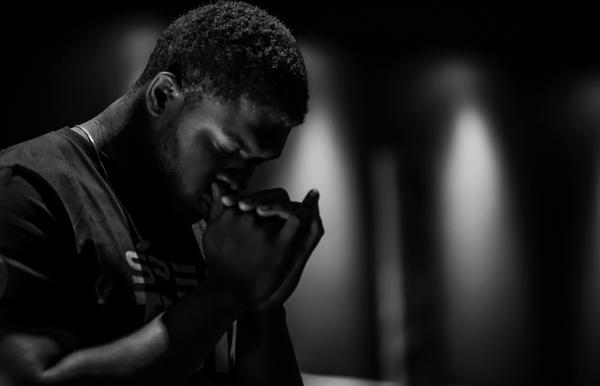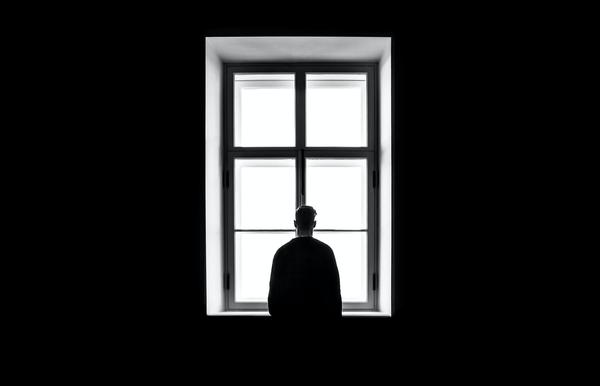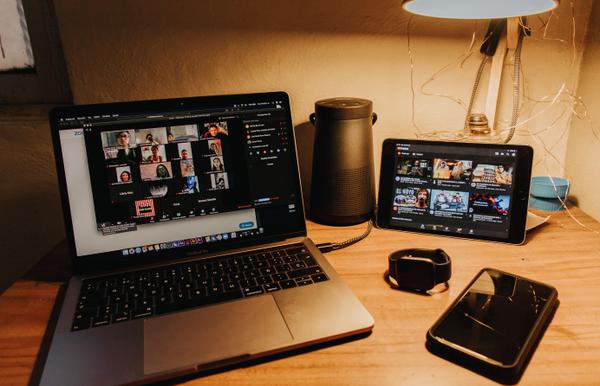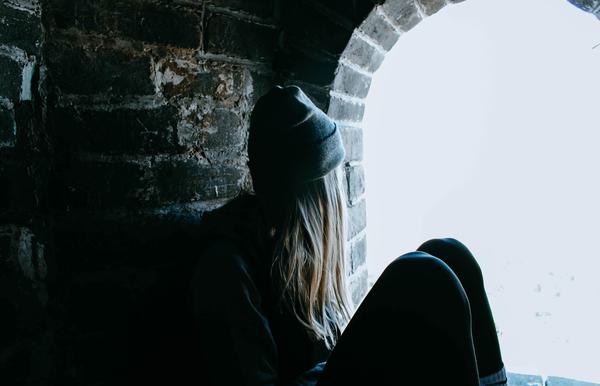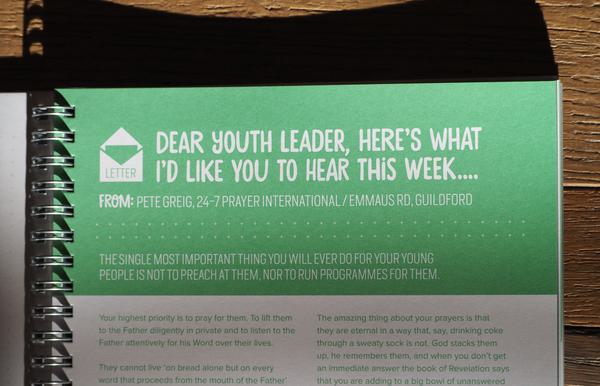We ran this liveblog from March to May 2020 to help youth leaders respond to the Covid-19 pandemic. All the content shared can still be accessed and searched for via the sidebar.
SOME HIGHLIGHTS FROM THE LIVEBLOG ARCHIVE:
Type: Blog post
There are 0 new posts since the page loaded. Refresh
The Monday Report: Gratitude, overwhelm, and unexpected positives of lockdown
Last week we asked you some questions for the Thursday 3x3 - a way to take the temperature of the youth ministry community during the Coronavirus pandemic. Every Thursday at 3pm we ask three questions that will take you no more than three minutes to answer. We had 28 responses so this is not a representative group and we can’t generalise from these answers to all Christian youth workers in the UK. This week we asked about how you’re feeling, lockdown guidance and positive experiences of youth ministry.
You can read the full report here.
1. STILL GRATEFUL, STILL OVERWHELMED
This is the third (and final) time we’ve asked about how you’ve been feeling over the last week. We’ve asked the same question in week one (n=60) week five (n=53) and now week ten (n=28). With half-term in full swing and many youth workers furloughed, we had fewer people fill out this third survey but there is still some real consistency around the emotional experiences of feeling grateful and feeling overwhelmed. We know practising gratitude is powerful, but how do you manage moments of feeling overwhelmed? Here’s a great article from Dr Kate Middleton on overwhelm and some encouragement from one youth worker to another in a recent blog post for Youthwork News by Gemma Milligan.
2. LOCKDOWN
In week three we asked whether young people were following social distancing guidelines and (as far as you knew) the majority of you said yes. Now that we all have permission to meet in small groups outside, we wanted to come back to the question. This time we asked which of the statements below you agreed with. Given that youth work is not generally face to face, it is interesting that 30% have explained the guidelines and 85% have encouraged young people to stick to them. 41% have witnessed young people they know not following the guidelines, some of whom have been struggling with anxiety. But, as someone pointed out in a comment, we neglected to ask whether you had seen young people followingthe guidelines! In fact, where people made comments it was generally to tell us about young people’s compliance, or their frustration at friends who weren’t complying.

3. THE UNEXPECTED POSITIVES
We would never choose them, but these experiences of crisis can sometimes precipitate welcome change in ourselves and others. So finally, we asked ‘Has lockdown had any positive impact for your work with young people?’ There were a range of responses, but here (in order of frequency reported) are the key areas where you’ve seen good developments.
- More meaningful contact with young people. Some people have supported more young people through lockdown, but for most it has been about smaller groups, more focused conversation, space to talk about feelings, the chance to offer pastoral care or just the opportunity to develop closer relationships with specific individuals.
- More creativity in your approach to youth work. You told us about diversifying your programmes, doing more one-to-one engagement, doorstep deliveries, art-based work and even being able to use WhatsApp - despite previous resistance to the idea.
- Deeper faith development. Some people have noticed young peoples’ faith developing through a renewed focus on God or scripture within group settings. Others described young people being more vulnerable, more supportive of peers or whose faith was flourishing where they were taking more responsibility in a group.
- Other answers. Finally, there were other positives that you told us about: more meaningful contact with the parents of young people; the chance to slow down and read; more contact between young people themselves; opportunities to just have fun; group exercise and even appearances on a Sunday.
New blog: a vital mindset shift for youth work
There's a new blog post up at Youth Work News! It's all about a mindset shift that can help us when pandemic crisis has robbed us of any sense of control.
"...in just one week, I tumbled from “fine” to “absolutely not ok”. A health scare in my family, the reality of isolation in a flat on my own for weeks, fears about youth work not working, like dominoes they tumbled one by one. Each fear triggered another, and I felt unable to pick myself up or stop the cascading fears. I was left feeling more anxious, sad, frustrated and hopeless than I have in years. I couldn’t stop my mind from going over everything that was changing, everything I was missing out on, the things I was losing, the people I was distanced from.
Sadly, I suspect I am not the only person who has been feeling something akin to this recently. It’s a feeling ultimately of losing control over things we once had."
Have to/Get to: A critical shift for youth work amidst crisis
How do we cope amidst the chaos, fear and confusion wrought by the coronavirus crisis? Lahna Pottle reflects on a small shift that made a dramatic difference for her work.
The Monday Report: Lockdown creativity, half-term breaks & youth worker encouragement
Last week we asked you some questions for the Thursday 3x3 - a way to take the temperature of the youth ministry community during the Coronavirus pandemic. Every Thursday at 3pm we ask three questions which will take you no more than three minutes to answer. We had 34 responses and this is not a representative group, so we can’t generalise from these answers to all Christian youth workers in the UK.
You can read the full report here.
1. Lockdown creativity: Treehouses, knitting and TikTok
For many people, lockdown has created the conditions to take up new hobbies or uncover buried creativity. So, we asked ‘Have young people you know been engaging in any creative activities to keep themselves occupied during lockdown?’ Three quarters said ‘Yes’, and 24 provided examples including: baking, painting, construction, journaling, making music, mindful colouring, writing, designing, knitting, gardening, making YouTube videos, learning musical instruments, mini artworks, stop-motion, woodwork, photography and coding.
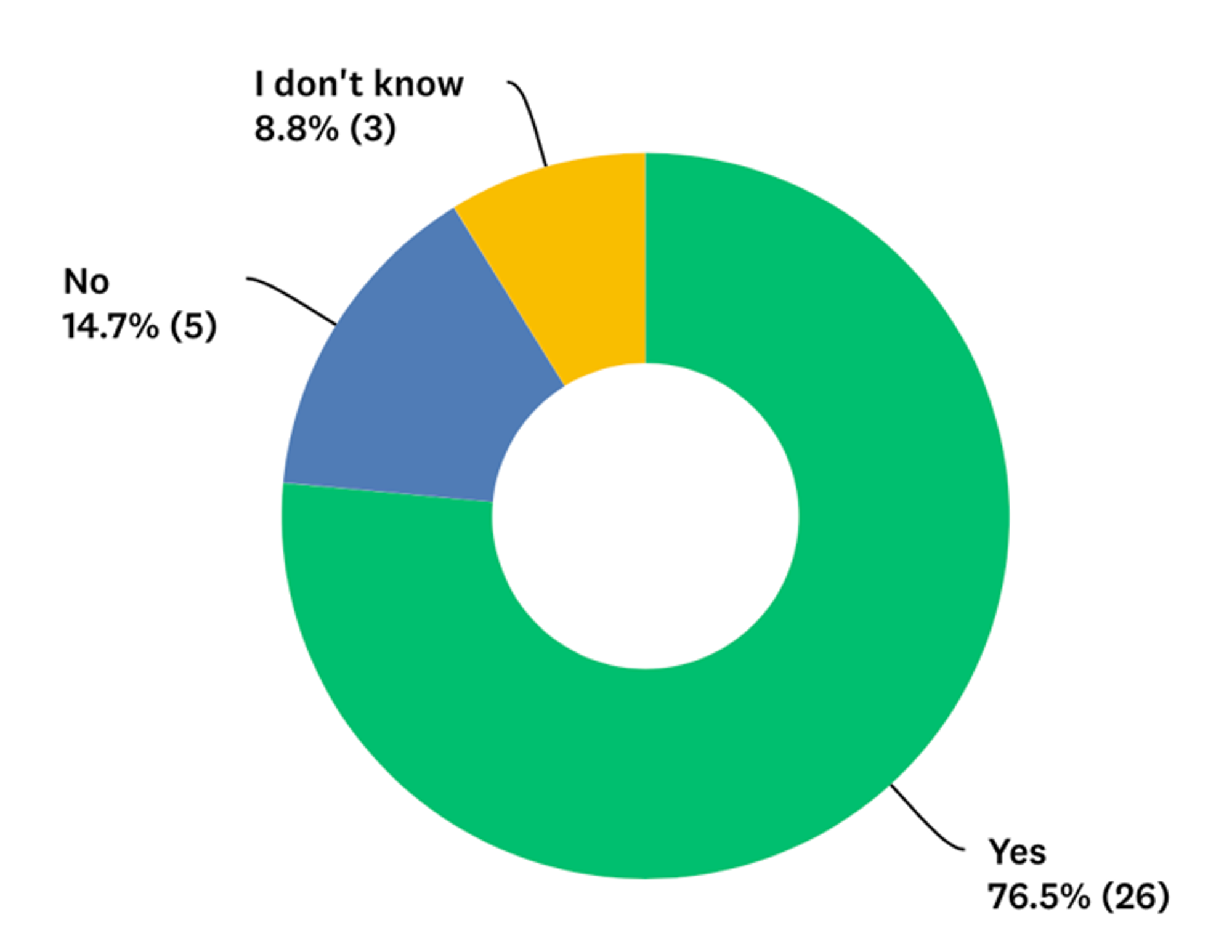
2. Half-term breaks?
At Easter time we asked you if you expected to slow down for the break and it was a really mixed bag. So, with another break upon us* we asked, “Are you stopping youth work activities over half term?” The majority (64.7%) aren’t stopping, although 14.7% of these are doing something a bit different this week. Just under a quarter are taking a break because that’s what they would normally do while 8.8% wouldn’t usually stop but sense the need for a break.
Of those who arestopping, many told us they are feeling tired. Some people pushed on through Easter but are stopping now, and some told us that they felt young people needed a break too. Some of those who are carrying on told us that young people and their parents still valued ‘meeting up’, and though they would usually stop they feel the need to “continue with our new normal”. One person reflected that “It seems like an opportunity missed if we stop for half term.”
3. Words of encouragement from one youth worker to another
Finally, as we enter week 10 of lockdown, it felt like a good moment to ask you, in one sentence, what other Christian youth workers might need to hear this week. We had a lovely message in there from a church leader who said “Take a day or two off. We love you and appreciate what you are still doing. Thanks for learning new skills and using them before you were probably ready.” I’ve summarised the key messages that were shared, with an example under each heading. Thank you so much for your contributions – I hope they encourage and affirm you!
What you are doing is important – “You are providing something stable and certain to young people when there seems very little certainty and everything keeps changing for them. Don’t underestimate the value of this.”
Just stay connected to young people – “Simply maintaining connection to the young people is the key thing at the moment; deeper conversations, teaching and spiritual formation may have to wait for now - and that's okay.”
Don’t judge yourself – “Don't make judgements on your calling or how good a youth worker you are. You're doing your best, this is not a fair time of evaluation for you or the young people.”
You’re not alone – “Feel unproductive, guilty about not doing enough but still being fully paid. You're not alone.”
You have limits, you will need to rest – “A youth worker’s job is never done. Log off and go outside…”
And when you reach the edge of what you can do, God is present, powerful and at work – “If you are finding it tough to engage young people over technology, you are not alone. And it doesn’t mean God has stopped working with them.”
Look up – what is God doing? – “Resist the urge to go back to normal. What is the new landscape God is helping you see?”
Don’t give up – “Keep going! It's tough I get it, but God is at work and doing so much more than you can see.”
God is with you - “Oh, God is just rejoicing over you. He loves you so much.”
Compassion and determination: the essentiality of youth work in a post-coronavirus world
There's a new blog post at Youth Work News from our Engagement Manager Gemma Milligan, drawing on this article from The Guardian.
"Despite huge funding cuts, little resources, and basically no advocacy, youth workers are still fighting to help meet young people’s needs; many choosing to do so in a voluntary capacity too. And I have little doubt that this is something that our world will be forced to rely upon in the months to come...there are now 2 million more (and 3 million in total) vulnerable young people in England due to this pandemic. That's huge. If there was a colossal need before it has now been tripled, and schools, mental health services, social care, and all other services that support young people, are going to be desperate for help to even begin to meet it."
Compassion and determination: the essentiality of youth work in a post-coronavirus world
‘Key work’ or not, youth work is essential not only for the millions of vulnerable young people in need, but for society as a whole. Can the government—and the church—recognise that?
Onelife leaders: Vulnerability in your youth group
Young people are missing their friends and their community; how can youth workers continue to help them build deep relationships? Onelife leaders have written a blog post about getting past the awkwardness and encouraging vulnerability. Here's a little excerpt:
"Sometimes it seems impossible to get young people to even speak to each other, let alone to call out each other’s faults and carry each other’s burdens! Now that we face the added obstacle of our screens, how do we move forward, building connection and a community of young people who challenge and support each other and call each other up into all God has for us?"

The Monday Report: Faith at home, young people’s questions and lockdown practice
Last week we asked you some questions for the Thursday 3x3 - a way to take the temperature of the youth ministry community during the Coronavirus pandemic. Every Thursday at 3pm we ask three questions which will take you no more than three minutes to answer. We had 48 responses and this is not a representative group, so we can’t generalise from these answers to all Christian youth workers in the UK.
This is a short summary of the Monday report. Head here to see the extended results.
1. Faith at home – it’s a bit of a blur
A couple of weeks ago the Church of England launched their Faith at Home initiative. We were curious about your perceptions of faith in the home, and how it might be affected by these circumstances. So, we asked ‘Do you think young people are experiencing more spiritual conversation/spiritual support from parents in the home since lockdown?’
The largest group (41%) said ‘I don’t know’ - which makes sense. Unless young people or parents tell you about conversations they are having, youth workers won’t really know what’s going on at home. Nevertheless 27% said ‘No’, with some commenting that young people were more likely to be getting hassled from parents, or that not many parents had the resources or capacity at the moment. 22% said ‘Yes’ and the final 10% commented that some young people were experiencing more spiritual support from parents and some weren’t, but that it depended on the parents themselves.
2. Definitely Some Questions Asked
You might know that we did a piece of research a couple of years ago about young people’s questions about faith and God. Having been thrown into such an unusual situation, we wondered whether lockdown had triggered any particular reflections or questions on faith from young people. Just over a third of the comments were some version of ‘No’, with little extra commentary.
The other two-thirds had observed reflections or questions from young people, and they ranged in theme. Some young people had questions about suffering, while others were about the role and mission of the church in these times. Some young people were asking about what the future might be like, about injustice, heaven and their own busyness. Young people have been reflecting on “what is important in life”, “how we are reacting to different aspects of lockdown”, “the importance of real-life friendships”, “developing a personal rather than collective faith” and feeling generally grateful for what they have, according to these youth workers.
3. Lockdown practice: less singing but more celebration
Finally, this is the week when we launch our latest piece of research, We do God, exploring the role of Christian practices in missional youth work. Given that life looks so different for us now than it did a few months ago, we asked one of our survey questions again. Have you been intentionally practising any of the following in the last six weeks?
Most of the top five are the same as they were six months ago, but taking the place of worship here is celebration. Are we making more of the celebrations happening anyway (like birthdays or Easter) or are we celebrating more? Previous surveys have certainly picked up a strong sense of ongoing gratitude, and this may well be related to the practice of celebration – even in these challenging times. There has also been an increase in the practices of lament, living simply and rest. But don’t worry. in case you’re thinking we’ve all gone mega holy, fasting is still down at the bottom of the list…
The Monday Report: Faith at home, young people’s questions and lockdown practice
Head of Research Lucie Shuker breaks down the results of our new weekly survey designed to hear how youth leaders are doing in the midst of COVID-19.
The Monday Report: Youth worker as key workers, post-lockdown support and shifts in online engagement
Last week we asked you some questions for the Thursday 3x3 - a way to take the temperature of the youth ministry community during the Coronavirus pandemic. Every Thursday at 3pm we ask three questions which will take you no more than three minutes to answer. We had 57 responses, and this is not a representative group, so we can’t generalise from these answers to all Christian youth workers in the UK.
This is a short summary of the Monday report. Head here to see the extended results.
1. TWO-THIRDS THINK YOUTH WORKERS SHOULD BE KEY WORKERS
Last week the National Youth Agency called for youth workers to be considered as ‘essential key workers’ so that they can continue to provide some face-to-face support to young people. We asked whether you agreed. Two-thirds said ‘yes’, a fifth said ‘no’ and the rest said they didn’t know. Respondents pointed out that that youth workers could be a lifeline for vulnerable young people who would otherwise fall through the gaps, but some people were concerned about physical distancing and didn’t see their work as equivalent to other essential services.

2. WE WANT SUPPORT FOR THINKING ABOUT YOUTH WORK POST-LOCKDOWN
Youth work organisations have rallied quickly to provide support, resources and guidance during lockdown, but it’s hard to know what people find useful. So, we asked ‘What support would you find helpful from youthwork organisations?’ 64% wanted guidance or advice on youthwork after lockdown, compared to 39% wanting advice about youth work during lockdown – suggesting that there is a need to prepare for how we’ll manage in the next phase. There is a desire for ‘general encouragement’ (52%), but fewer people want to engage in discussion with other youth workers (30%). Finally, it’s encouraging to see just over half the group have an appetite for ‘new models or approaches to youthwork’ (52%), as well as ‘session plans for online youth work’ (50%). Other suggestions were ideas for ‘all-age slots’ at online church, how to keep connected over a sustained period of lockdown, mental health resources to support young people/youth workers and, uhm, gardening tuition online…
2. A CORE GROUP ARE SHOWING UP ONLINE, BUT SOME ARE STILL MISSING
This week we asked, ‘How are young people engaging with online activity you are offering in week six, and how does this compare to the earlier weeks of lockdown?’. Just over half the answers (54%) were positive, describing a core group of young people engaging fairly consistently with online activities. While some people were effusive about online work, others were struggling. One person said that young people were still engaging well but “It’s getting harder and harder to keep it fresh and almost impossible to really connect with them through it”. And a number of people also said that although engagement has been stable, there has always been a group of young people who never showed up in the first place.
“We have the same group of young people each time we do a zoom chat. They are keen, but the rest of the group haven’t yet engaged.”
Finally, eight people told us that young people were not engaging with online activities at all, or much less than they had been. This was ascribed to weariness with Zoom, the burden of schoolwork, the novelty having worn off and having to manage home life. It’s important to remember that we don’t know the context behind these comments or numbers and it’s probably too soon to understand why things work well in some places/moments and less well in others. Whatever your experience, your desire to support young people comes through loud and clear. Keep going!
New blog post: Permission to fail - an open letter to the youth ministry community
When all we hear are the success stories of youth workers and churches running amazing youth work online, it's easy to get discouraged if that hasn't been our experience. In a new blog post, Jemimah Woodbridge opens up about YS Luton's lockdown experience so far:
"So, here I am, putting my hand up, and daring to say that this period of trying to respond to a totally changed world has been really difficult – to the point that we tried something, and it failed. I’m doing it because I hope it will give others permission to do the same. I waited for that someone else to hold their hands up, but all I see when I look at my social media feeds is glossy, exciting success stories. We need those of course, but we also need to honestly embrace the pain of trying new things."
Permission to fail: an open letter to my friends and colleagues in the youth ministry community
Has online youth work been difficult for you? In an open letter to her fellow youth workers, Jemimah Woodbridge calls for failure stories (as well as the victories).
New blog post: The Psychological Aftermath of Quarantine
What impact could this period of quarantine have on our mental health, and the mental health of the young people we work with? As a Church, what could we be doing to prepare? Gry Apeland explores this in a new Research News blog post:
"What we might need to prepare for instead is to walk slowly with our young people, as we take the first feeble steps together back into what we used to call ‘normal’. Does a group of 20 feel scary? Let’s start with five. Some of us could come out with long-lasting psychological symptoms – let’s have patience for each other. Let’s create a space for young people where it is safe to process this experience, even long after it is over."
The Psychological Aftermath of Quarantine
Gry Apeland reflects on the impact quarantine could have on our collective mental health, and how we can we prepare.
The Monday Report: Gratefulness, gender and good music
Last week we asked you some questions for the Thursday 3x3 - a way to take the temperature of the youth ministry community during the Coronavirus pandemic. Every Thursday at 3pm we ask three questions which will take you no more than three minutes to answer. We had 50 responses, and this is not a representative group, so we can’t generalise from these answers to all Christian youth workers in the UK.
This is a short summary of the Monday report. Head here to see the extended results.
1. WE'RE FEELING GRATEFUL, BUT MORE CONCERNED AND LESS OPTIMISTIC
At the end of the first week of lockdown, we asked youth workers to identify up to three feelings they had been experiencing most often. The top three were "overwhelmed’, ‘optimistic’ and ‘thankful".
We repeated the question last week, and ‘thankful’ had jumped to the top of the list, chosen by 44% of the group. Being thankful is a spiritual practice that is particularly important for sustaining mental health during challenging circumstances, and has been shown to be associated with enhanced well-being in numerous studies as well. Coming in second was ‘overwhelmed’ at 34%, and behind that was ‘concerned’ at 30%, which has doubled from 15% in Week 1. Optimism is still present, with 20% highlighting this as one of their top three emotions of the last week – but much lower than the 38% of Week 1.

2. GENDER AND LOCKDOWN: HOW ARE YOUNG PEOPLE RESPONDING?
We asked whether you’d noticed any differences in how young people are managing in lock-down, depending on their gender. First, the caveat. These are perceived differences, so we’re not saying that they are real or true for all young people. Indeed, 14 people said they hadn’t noticed any particular patterns related to gender.
Where differences were described, some were related to perceived patterns of communication: girls are talking to their friends more, while were boys are connecting over gaming. Some saw girls as being more willing than boys to seek support early in the lockdown, while boys appeared to be ‘ok’. For some, this is reversing and girls engagement is trailing off as they find their feet, while boys are now more likely to reach out for support
Boys were perceived to be feeling the absence of sport and physical activity outside, with some youth workers describing young men as being less engaged with video calls than young women. A few people mentioned that girls appeared highly invested in doing well in their education while boys seemed more laid-back in this regard. Finally, there were references to boys feeling bored (and some becoming frustrated and angry), while girls appeared more likely to be independently occupying themselves.
What do we make of this? Well, while gender is likely to be a factor affecting how young people cope with and experience lockdown, it is just one of many. This small sample won’t give us answers but might create the opportunity for you to reflect on your own context and what you have noticed. Do young men and women have different needs at this time? How are we likely to perceive them, and how might that affect what we observe?
These answers just raise more questions, don’t they?
3. GIRL (AND BOY) PUT YOUR RECORDS ON
Finally, we asked, "If you could contribute one song to the ultimate lockdown playlist to lift other youth workers' spirits, what would it be?" Half of you went for worship songs and the rest for your favourite uplifting tunes (there are some truly amazing choices in there). So, we’ve made two playlists for you. Enjoy!
THE SONGS:
THE WORSHIP SONGS:
New blog post: Is TV's Sex Lockdown "Too Hot to Handle?"
Netflix's answer to Love Island involves a different kind of lockdown. Rachel Gardner explores what this means for young people. Are the young people you work with watching it? This could be a great opportunity for a discussion. Check out the blog post here.
"One mistake can label you for a long time, especially in some church communities. Little wonder that some young people react like the contestants; if you've been unfairly singled out for a small misdemeanour, you might as well go the whole hog. Oh, and that’s the other thing Harry says as he kisses Francesca, ‘We’re already f*** up, we might as well do the whole lot.’ Sound familiar?"
Is TV's Sex Lockdown "Too Hot to Handle?"
Netflix's answer to Love Island involves a different kind of lockdown. Rachel Gardner explores what this means for young people.
Quarantine idea #7: Quiz Night
Just about everyone seems to have been involved in a video-chat quiz at some point over the last few weeks. It’s a great way of doing something fun as a group while being apart. It’s also a great thing to do as a youth group. You could run it as an outreach or social event and encourage young people to get their friends involved.
If you want to run a quiz for your youth group here are some pointers to help get you started:
- While you could opt for the traditional quiz rounds – general knowledge, music, sports, etc – it’ll be more exciting to the group if you include some rounds more specific to them. For example, why not include some questions about the area where you live? You could put up pictures of roads or well-known places and ask them to name them. Or what about a leaders’ baby picture round – match which picture belongs to which leader.
- Get inventive with your questions. Keep it fun and interesting but remember who your audience is – make sure there are a few easier questions thrown into the mix.
- It’s probably a good idea to keep each round quite short to make sure you are keeping everyone’s attention.
- Try and make it as visual as possible. If your video-chat platform of choice has a share screen function, make use of it! Create a PowerPoint and include pictures, logos, etc for the group to identify.
One last thing to mention is a great programme called Kahoot! which allows you to create quizzes online. Questions are viewed on a shared screen and players answer individually on their own devices. For more information and tutorials on how to run a Kahoot! quiz, check out their website.
Happy quizzing!

Online church: who's tuning in?
Trying to get a sense for how many young people are engaged with the groups and services you're running online? Mark Crosby, Director of Communications for the Vineyard Church, has written this helpful guide to understanding the metrics for online stats.

New blog post: Order out of chaos: Creating a Rule of Life
Martin Saunders explores the monastic idea of a "Rule of Life" as a way of ordering our everyday lives. Could this also be something you encourage young people to do?
"Our markers and cues for daily living have been replaced by a swirling mass of emptiness, and for some of us, chaos. In this new, unplanned and unmeasured version of life, it’s hard to know whether we’ve had a good day or not; whether we can feel a sense of accomplishment that the day has been well-lived."
Order out of chaos: Creating a Rule of Life
With "normal" life so disrupted, how can we create helpful rhythms in our lives? Martin Saunders looks to ancient spiritual practices.
Self care box
BBC Bitesize have published a really helpful article about young people and self-care. They spoke to someone from Young Minds, who suggested making a "self-soothe" box, filled with things you love, like chocolate, perfume, books you like, encouraging letters from people, etc.
Could this be helpful for some young people you're working with? Give it a read and see if you can pick up some ideas.

Liveblog: midweek round-up
Welcome back to the mid-week round-up – bringing you liveblog highlights from the last seven days just in case there’s anything you’ve missed.
- We’re a few weeks into lockdown and the exhaustion of constant video calls is starting to take hold. Will Van Der Hart from the Mind and Soul Foundation articulated what so many of us are feeling his recent blog post ‘Telephone Empathy’. The article is full of insights and reflections on the exhaustion of video calls. There’s also a load of useful tips which are beneficial for youth leaders to read through and to recommend to any young people who are struggling with the beginnings of digital burnout.
- The theme of being tired of life online continued in Youthscape Podcast Special #10 where Martin and Rachel discuss ‘screen fatigue’ and how young people might try and reclaim online spaces.
- Many new resources appeared on the blog this week from several different organisations covering a variety of topics. While only a few are highlighted here, it is definitely worth scrolling through the blog to see what other excellent resources have been posted. Church Army has created a booklet titled: "Death, grief and hope", aimed at helping support young people during Covid-19. Premier Youth and Children's Work have published a really helpful article, by Mark Arnold, about how to help children/young people with additional needs to understand Coronavirus. Lastly, Youthscape released the final session in the online Together Apart series. All sessions are still available on the liveblog and provide comprehensive session plans to enable youth leaders to run a traditional youth group model online.
- Youthscape's Head of Theology, Dr Phoebe Hill, has written a blog exploring the dangers of "theologising" a crisis. The blog is inspired by a current area of research into theological reflections in youth ministry. The research team is asking for youth leaders – both employed and voluntary – to join with them on this project by filling in a survey. By taking the time to complete the survey you’ll also be in with a chance of winning a £100 voucher!
- The weekly Monday report summarised the discoveries of the Thursday 3x3 and provided insights into what youth workers are seeing and experiencing in relational to quarantine struggles, online church and life after lockdown. Please join us on 3pm each Thursday and spend 3 minutes answering 3 questions to help give us a greater understanding of what life is like for youth leaders and young people around the country at this time.
As always, we want to thank you so much for your support and if there’s something you’d love to see or even something you want to contribute in coming weeks please get in touch!
The Monday Report: lockdown struggles, online church and lessons for the future
Last week we asked you some questions for the Thursday 3x3 a weekly survey of three quick questions, to take the temperature of the youth ministry community during the Coronavirus pandemic. It was another quiet week, thanks to Easter so thank you to the 57 people who answered our questions. Remember, the sample is not representative of the wider Christian youth work tribe so we shouldn’t assume that they apply to everyone!
This is a short summary of the Monday report. Head here to see the extended results.
1. KNOWNS AND UNKNOWNS: BOREDOM, ANXIETY AND POOR SLEEP
We presented a non-comprehensive list of issues young people might be facing during lock-down and asked you whether you knew young people were facing this, were concerned they might be, didn’t think it was an issue or just didn’t know. Head to the full report to see the results.
80% said they knew young people were experiencing boredom, while 68% highlighted anxiety and 67% poor sleep. It’s interesting that 56% are concerned about young people’s use of technology (too broad a concept really), but only 32% know this is actually an issue. 95% said that loneliness was either a known issue, or something they were concerned young people were experiencing, and 42% said they knew young people who had family members with COVID-19. It is interesting to look at what shows up at the bottom of the list too. There is concern that young people will be increasingly likely to be victims of exploitation, bullying or domestic violence during the lockdown, but most of our respondents either said this wasn’t an issue or they didn’t know if it was. Do we know how to spot the signs, if this was happening to a young person? Finally, two-thirds said that ‘not enough food’ wasn’t likely to be an issue for young people they supported, with only 7% highlighting that this was a known problem.
2. ONLINE CHURCH AND YOUNG PEOPLE: THE ACTION IS NOT ON SUNDAY
Many of us will have experienced multiple weeks of online church services by now, so we asked, ‘What’s that like?’ Most churches seem to be taking a pick n’ mix approach to the platforms they are using for online church services. At one end of the spectrum, some are exclusively pre-recording and broadcasting the service on YouTube while others are running highly interactive gatherings using Zoom (games, discussion, readings). In-between are the many who are blending ‘broadcast’ material alongside chat boxes or WhatsApp groups that are open for prayer/feedback or chat before/after or during services, and activities for children emailed in advance to families.
When it comes to Sunday services, the general sense was that they aren’t youth-friendly enough and that as a result, youth workers are leaning more heavily on supplementing these services with sessions straight after the Sunday service, at other times in the week (online youth groups), and with contact using other platforms (see week 1). Of those who mentioned young people specifically in relation to Sunday services, 14 of the 22 comments were negative, with only two being positive about the impact that moving online was having.
“No real provision for young people - even though we've asked for it. Church leaders seem blindsided by this, and are just focusing on their 'core flock’.”
3. THAT'S A KEEPER: ONLINE TOOLS, NEW IDEAS AND REGULAR DEVOTIONALS
Four weeks into lockdown we asked you to tell us up to three things that you’ve been doing differently in your youth work/ministry that you would like to continue doing when this period is over. Of course, the jury’s out on what ‘over’ means, but you get the idea. This one feels perhaps most important of all, so although this is a very quick analysis of your answers, I hope we can revisit this question again.
- Making better use of online platforms and tools: Zoom for team meetings, youth group and mentoring; individual/group messaging; YouTube; Instagram and better use of social media and video in general
- New content or approaches: Worship Wednesdays, online baking sessions, video-recorded interviews, digital detox, weekly shuffle challenges. Whether it’s new ideas, or a slightly different approach (simpler, shorter, less focused on content) there is lots of ‘new’ happening.
- Supporting young people’s faith. Lots of you want to keep sharing regular ‘devotional’ content, whether that’s publishing video reflections, sending texts or letters of encouragement or Instagram posts of scripture.
- More regular and one-to-one contact with young people. There’s a desire to continue to invest in relationships through checking in with individual young people, often through text, phone calls or post.
- Parents and prayer. And then finally, respondents wanted to maintain a greater level of communication with parents and to continue to pray more in the future.
SEE YOU NEXT THURSDAY
Thanks to those who took part. Why not put Thursday 3pm in your diary and check back here each week to take part yourself?

Helping children/young people with additional needs to understand Coronavirus
Premier Youth and Children's Work have published a really helpful article, written by Mark Arnold, about how to help children/young people with additional needs to understand Coronavirus. Mark is the Additional Needs Ministry Director at Urban Saints. The article lists some useful resources and gives some practical tips.

New blog post: To the overwhelmed youth worker, you are not alone
Are you feeling overwhelmed? In need of some encouragement? Gemma Milligan, Youthscape's Engagement Manager, has written a blog post just for you.
"These are overwhelming circumstances, and it can sometimes be really difficult to know how to cope. And when we add into the mix the new challenge of trying to find creative ways to continue to connect with and support young people during this time, this can feel like a very big ask..."
To the overwhelmed youth worker, you are not alone…
From one youth worker to another - here are three encouragements for you.
Onelife Leaders Resources
Onelife Leaders have put together some ready-to-use resources for youth workers during the pandemic, including online gatherings for youth workers, discipleship tools and some helpful blog posts. Check it all out here.





